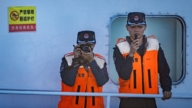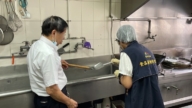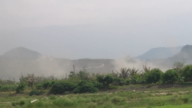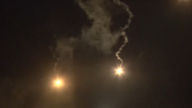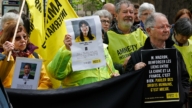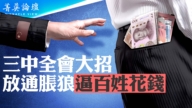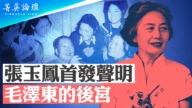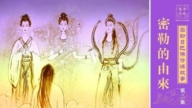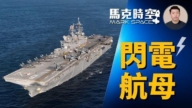【新唐人2011年8月25日訊】台灣民進黨主席蔡英文8月23號提出參選明年總統的政策綱領,在「十年政綱」兩岸篇,她主張,兩岸政府都應該超越舊的歷史框架,以追求共同利益的戰略思維,改變戰略對峙的態勢。蔡英文重申否定「九二共識」,再度引發台灣朝野爭議,馬英九總統回應表示,這會對台灣造成衝擊。
蔡英文22號先發表參選的政策綱領「十年政綱」總綱,又在23號公布「十年政綱」兩岸篇,分為「國家安全戰略篇」與「兩岸經貿篇」兩部分。
蔡英文表示,台灣已經是一個主權獨立的國家,必須透過民主機制凝聚「台灣共識」,以「和而不同、和而求同」為基調,建構兩岸新的互動架構。她重申,「九二共識」不存在。
「九二共識」是兩岸在1992年香港會談中口頭協商的共識,國民黨認為,其核心是「一個中國,各自表述」,也就是北京的「一中」指的是中華人民共和國,而臺方的「一中」是中華民國。
蔡英文:「當時的主其事者,不論是李前總統也好,或者是辜振甫先生也好,都說沒有『九二共識』,它是一個不存在的東西,就沒有所謂承認與不承認、接受與不接受的問題,要強拉整個國家在這個觀念之上往前走,其實是一個不符合現代民主社會的期待。」
陸委會主委賴幸媛率先提出「十八問」,質疑蔡英文的兩岸論述。民進黨則反駁,兩岸對「九二共識」的認知與定義不同。
馬英九曾援引大陸國家主席胡錦濤與前美國總統布希的電話談話,表示,大陸的一貫態度,就是希望大陸和台灣應該在「一中各表」的「九二共識」上,重新恢復協商,確立「九二共識」的存在。
對於北京方面認為蔡英文是「理念臺獨」,蔡英文說,她相信中國大陸內部仍有理性思考的力量,會成熟看待兩岸關係。
民進黨立法院黨團總召集人柯建銘表示,蔡英文的「兩岸政綱」破除了外界疑慮, 如果明年民進黨執政,會接受兩岸簽署ECFA經濟合作協議的事實,不過,未來是否要調整內容,將透過民主程序,讓國會有效監督。
賴素如(國民黨發言人):「我們希望她(蔡英文)更具體明確的說出她的走向,如果她不承認『九二共識』,那她也要明確的告訴民眾,兩岸之間未來的發展要如何來進行。」
23號是「八二三炮戰」53週年,馬英九總統在金門出席「中華民國建國100年和平祈福日」活動。1958年8月23號,中共解放軍對金門發動炮擊,持續40多天落下47萬多發炮彈,死傷軍民超過2000人。
53年後一座以炮彈碎片打造的和平鐘,在金門和平園區揭幕,馬英九總統與諾貝爾和平獎得主、南非前總統德克勒克等外國嘉賓,共同敲響和平鐘,祈願兩岸和平,世界安寧。
馬英九致詞時表示,他三年前上任後,提出符合台灣利益的務實主張,以「九二共識」作為基礎,推動兩岸和平發展,至今雙方總共簽署15項協議。他的「不統不獨不武」政策,已經成功降低了兩岸的緊張,他要為全民打造一個和平的環境。
馬英九:「如果『不統不獨不武』跟『九二共識』的政策被推翻,兩岸關係必然陷入不確定的狀態,對兩岸都會有很大的衝擊,對台灣的影響尤其重大。」
研究台灣選舉的「東華大學」教授施正峰表示,民進黨和國民黨的兩岸政策其實越來越接近,強調不接受「九二共識」至少可以區隔兩黨的不同之處。
施正峰:「民進黨如果接受『九二共識』,基本上就是向國民黨投降,ECFA等等你看她今天的那些東西其實所講的,跟國民黨的經貿部分也沒有很大的差別,提到所謂的和平穩定的框架,也差不多就是阿扁提出來的,你如果再連『九二共識』都撤走了之後,那如何跟國民黨選舉的時候作區隔呢?」
英國BBC指出,從一些民調上來看,蔡英文與尋求連任的馬英九勢均力敵。兩岸當局都聲稱是在「九二共識」下交流,馬英九與北京都表示,民進黨如果不承認「九二共識」,將使兩岸交流中斷。
新唐人記者李元翰、周平綜合報導。
Tsai Ing-wen mentioned political progress between Taiwan and China
Democratic Progressive Party (DPP) chair Tsai Ing-wen
proposed her policy agenda for next year’s
presidential election on Aug 23.
In the Mainland-Taiwan relation section of the “Ten Year Agenda,"
she urged for the governments on both sides to step out of the
historical framework, use the pursuit of common interests as
an objective to change the current confrontational relationship.
Tsai Ing-wen reiterated her disapproval of the “1992 consensus,"
again provoking political controversy.
President Ma Ying-jeou responded that this will
impact the state of Taiwan.
Tsai Ing-wen first published her presidential candidate
“Ten Year Agenda" on August 22,
and then added the “cross-strait" chapter on August 23,
which is composed of a “national security strategy" section
and a “cross-strait economy" section.
Tsai Ing-wen expressed that Taiwan is already
an independent country and must reach a “Taiwan consensus"
through democratic mechanisms;
with “friendly but not the same, friendly with share goal"
as basis to establish a new relationship with the mainland.
She reiterated that the “1992 consensus" does not exist.
The “1992 consensus" was an oral consensus that
was reached during a cross-strait talk in Hong Kong.
The Kuomintang (KMT) believe that core of the consensus was
“One China, two interpretations."
This means for Beijing, “One China" refers to
the People’s Republic of China,
but for Taiwan, “One China” refers to the Republic of China (ROC).
Tsai Ing-wen: “The person in charge at the time,
whether it was former president Lee or Mr. Koo Chen-fu,
they all said ‘1992 consensus’ does not exist,
so there is no issue of accepting it or not.
If (we) are to forcefully drag the entire country on
this concept that doesn’t exist,
this really doesn’t not meet the expectations
of a modern democratic society."
Mainland Affairs Council Chairman Lai Shin-yuan first raised
“eighteen questions," doubting Tsai’s cross-strait agenda.
The DPP responded by saying that mainland and Taiwan
have different understanding of the “1992 consensus."
Ma Ying-jeou once quoted a conversation between Hu Jintao
and former U.S president Bush,
saying that mainland’s stance is hoping that mainland and
Taiwan restore the “1992 consensus" and accept its existence.
Regarding the fact that Beijing believe that Tsai wants
“the concept of independent Taiwan,"
Tsai expressed that she believe the mainland government
can also think rationally,
and look at the cross-strait relations maturely.
DPP Legislative Yuan convener Ker Chien-ming expressed,
Tsai’s “cross-strait" agenda removed the outside doubts.
If the DPP wins the election next year, it will still sign
the ECFA cooperation agreement with the mainland.
However, as to whether the content will be modified,
that will be determined by a democratic process,
so it can be effectively supervised.
Lai Suru (KMT spokeswoman),
“We hope that she (Tsai) explain her direction in more detail,
if she does not recognize ‘1992 consensus,’
then she need to tell the people,
how will the cross-strait relationship develop in the future."
The 1958 bombing’s 53rd anniversary was on Aug 23.
President Ma Ying-jeou attended the “Republic of China
100 years of peace prayer day" activities in Jinmen.
On Aug 23, 1958, Chinese Communist Party (CCP) forces
bombarded Jinmen continuously for 40 days.
They fired 470,000 shells, which killed more than 2,000
civilians and military personals.
After 53 years, a peace bell was built using remains of
bomb shells and revealed in Jinmen.
President Ma Ying-jeou sounded the peace bell together
with Nobel Peace Prize winner and former South African
President F. W. de Klerk and other foreign guests,
praying for the cross-strait peace and the world peace.
President Ma expressed in his speech,
that when he took office three years ago,
with Taiwan’s interests in mind and
with “1992 consensus" as the basis,
he promotes cross-strait development,
which has led to signing of 15 different agreements.
His “no unification, no independence, no war" policy had
successfully reduced the tension between
mainland and Taiwan and created a peaceful environment.
Ma Ying-jeou: “If ‘no unification, no independence,
no war’ and ‘1992 consensus’ are overturned,
the cross-strait relationship will fall into uncertainty,
this will greatly impact both sides, especially Taiwan."
The Taiwan election scholar, Professor Shi Zhengfeng
from Donghua University expressed that,
the cross-strait policy of the DPP and KMT
are getting very similar,
not accepting the “1992 consensus" can at least
keep some difference between the two parties.
Shi Zhengfeng: “If DPP accepts the ‘1992 consensus,’
that’s like surrendering to the KMT;
things like ECFA that she talked about today;
it’s very similar to the economic aspects of the KMT.
Regarding the peace structure,
it’s also very close to what Chen Shui-bian said.
If she backs down on the ‘1992 consensus,’
then what is the difference, comparing to the KMT?"
British CCP pointed out, based on some opinion polls,
Tsai Ing-wen and Ma Ying-jeou are evenly matched.
Both mainland China and Taiwan say
they are communicating under the “1922 consensus."
Both Ma Ying-jeou and Beijing expressed that,
if DPP does not recognize the “1922 consensus,”
then their cross-strait relation will end.
NTD reporters Li Yuanhan and Zhou Ping.


